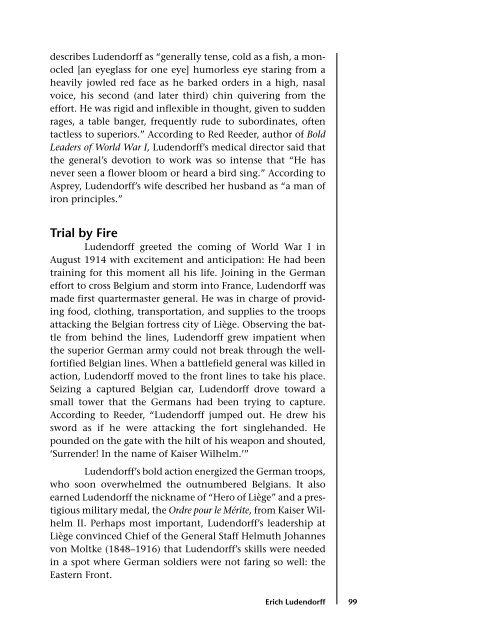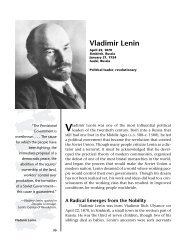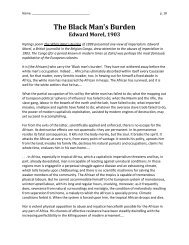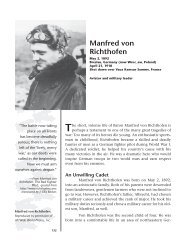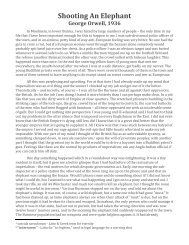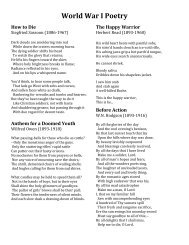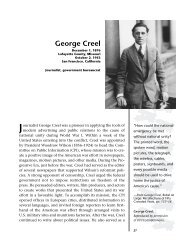Erich Ludendorff
Erich Ludendorff
Erich Ludendorff
You also want an ePaper? Increase the reach of your titles
YUMPU automatically turns print PDFs into web optimized ePapers that Google loves.
describes <strong>Ludendorff</strong> as “generally tense, cold as a fish, a monocled<br />
[an eyeglass for one eye] humorless eye staring from a<br />
heavily jowled red face as he barked orders in a high, nasal<br />
voice, his second (and later third) chin quivering from the<br />
effort. He was rigid and inflexible in thought, given to sudden<br />
rages, a table banger, frequently rude to subordinates, often<br />
tactless to superiors.” According to Red Reeder, author of Bold<br />
Leaders of World War I, <strong>Ludendorff</strong>’s medical director said that<br />
the general’s devotion to work was so intense that “He has<br />
never seen a flower bloom or heard a bird sing.” According to<br />
Asprey, <strong>Ludendorff</strong>’s wife described her husband as “a man of<br />
iron principles.”<br />
Trial by Fire<br />
<strong>Ludendorff</strong> greeted the coming of World War I in<br />
August 1914 with excitement and anticipation: He had been<br />
training for this moment all his life. Joining in the German<br />
effort to cross Belgium and storm into France, <strong>Ludendorff</strong> was<br />
made first quartermaster general. He was in charge of providing<br />
food, clothing, transportation, and supplies to the troops<br />
attacking the Belgian fortress city of Liège. Observing the battle<br />
from behind the lines, <strong>Ludendorff</strong> grew impatient when<br />
the superior German army could not break through the wellfortified<br />
Belgian lines. When a battlefield general was killed in<br />
action, <strong>Ludendorff</strong> moved to the front lines to take his place.<br />
Seizing a captured Belgian car, <strong>Ludendorff</strong> drove toward a<br />
small tower that the Germans had been trying to capture.<br />
According to Reeder, “<strong>Ludendorff</strong> jumped out. He drew his<br />
sword as if he were attacking the fort singlehanded. He<br />
pounded on the gate with the hilt of his weapon and shouted,<br />
‘Surrender! In the name of Kaiser Wilhelm.’”<br />
<strong>Ludendorff</strong>’s bold action energized the German troops,<br />
who soon overwhelmed the outnumbered Belgians. It also<br />
earned <strong>Ludendorff</strong> the nickname of “Hero of Liège” and a prestigious<br />
military medal, the Ordre pour le Mérite, from Kaiser Wilhelm<br />
II. Perhaps most important, <strong>Ludendorff</strong>’s leadership at<br />
Liège convinced Chief of the General Staff Helmuth Johannes<br />
von Moltke (1848–1916) that <strong>Ludendorff</strong>’s skills were needed<br />
in a spot where German soldiers were not faring so well: the<br />
Eastern Front.<br />
<strong>Erich</strong> <strong>Ludendorff</strong> 99


